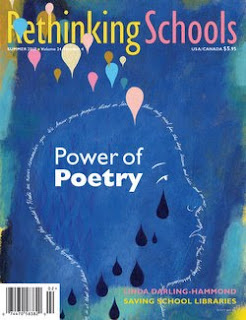Safe Classrooms: Social and Emotional Learning
The basis of what Keith and I teach in our classes is for educators to provide a safe environment for students. This "safe container" includes emotional as well as physical aspects and pays huge dividends in better attitudes towards each other, the teacher, and the school in general. This translates into increased opportunities to learn. Check out this video from Edutopia about Jefferson County, Kentucky's Caring for Kids Initiative which seeks to"build positive, caring, learning communities," and you may learn some interesting concepts around safe classrooms. Security monitor Richard Little says that when kids come in with a smile and leave with a smile his job is done. What a wonderful thought. Principal Alicia Averette says that activities and games around social and emotional learning do not necessarily cut into instructional time (a comment we hear quite a bit), instead they cut down on having to take time to settle conflicts during instructional time,
